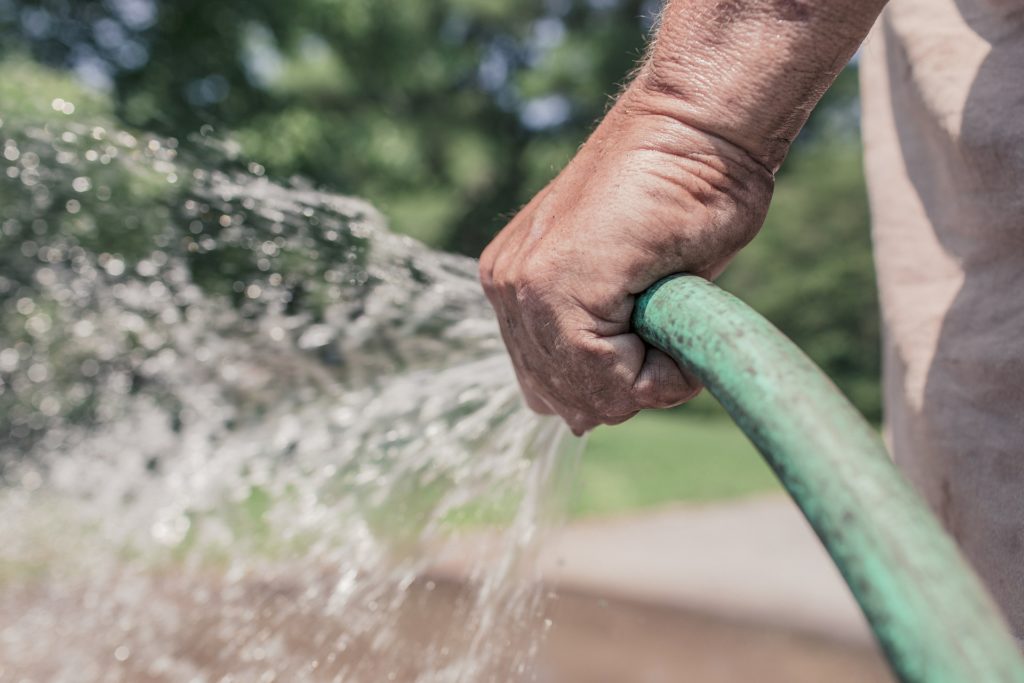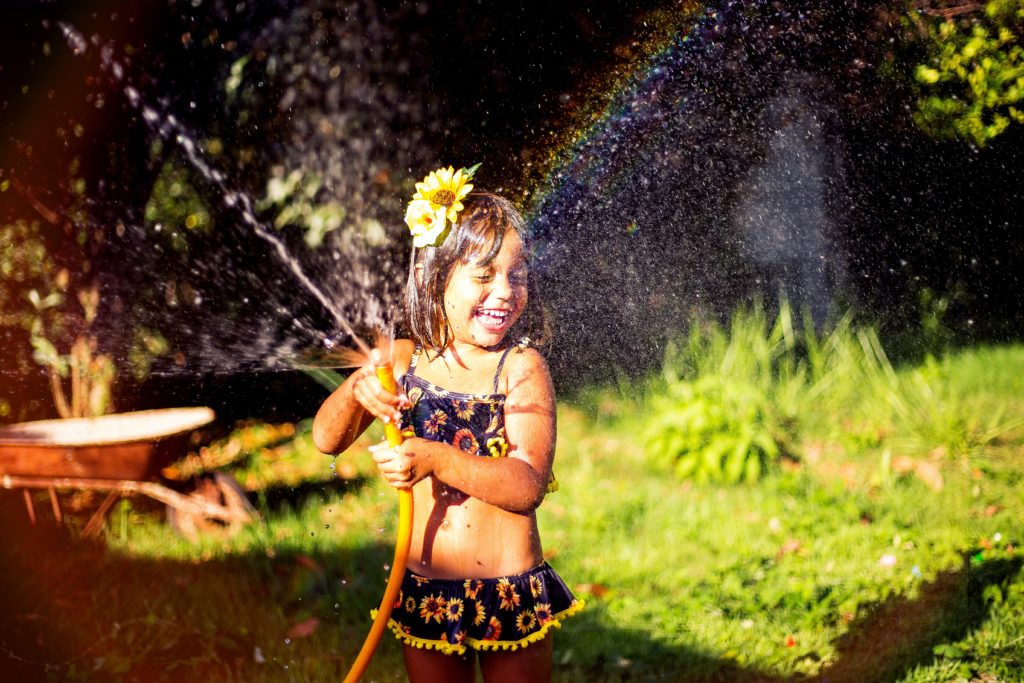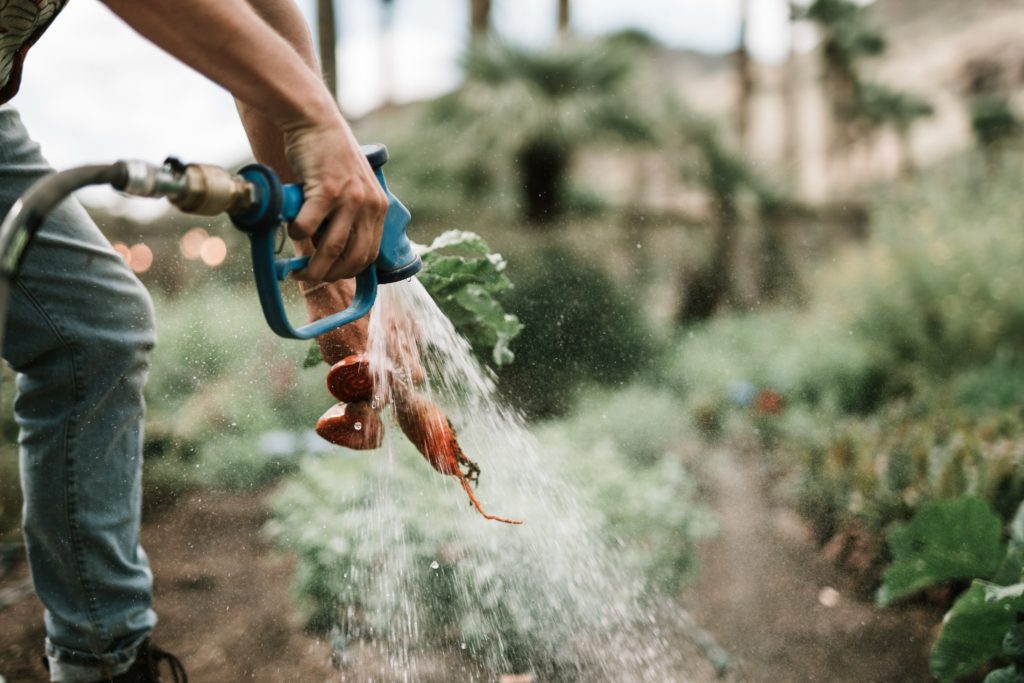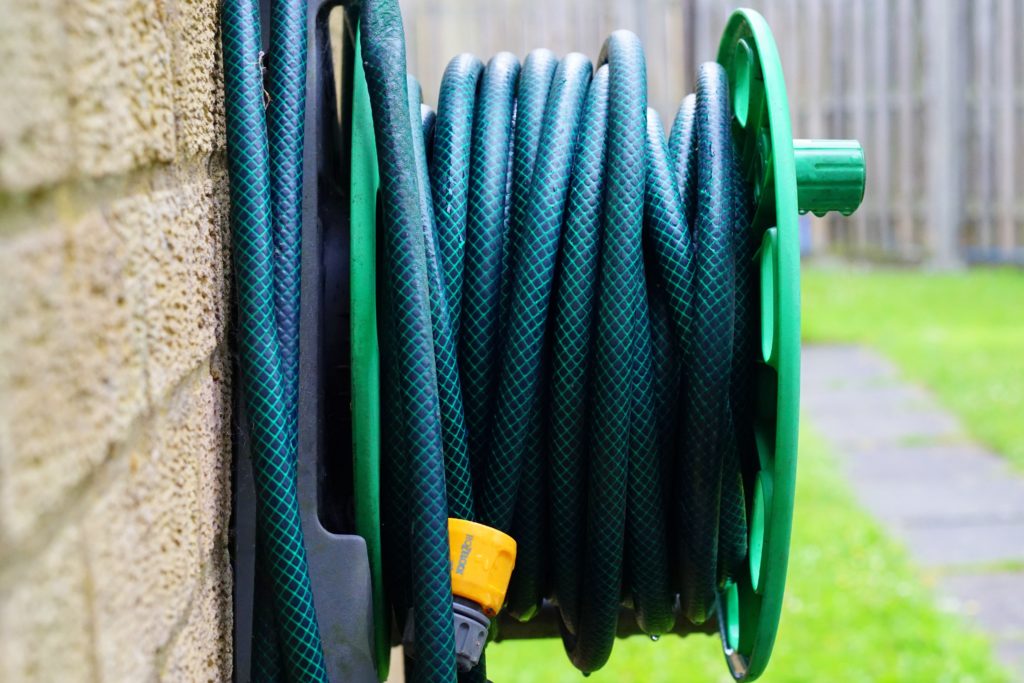Tips/Articles,
Growing Green: Are you watering with a toxic garden hose?
May 27 2020

Do you consider yourself an eco-conscious gardener? Perhaps you compost. You use a rain barrel. You’ve got native plants. You avoid synthetic pesticides and fertilizers – but what about your hose?
What about my hose?
If you take a look at the label on a standard off-the-shelf garden hose, you’re likely to find – in teeny-tiny writing on the back – a warning not to drink from the hose or a California Proposition 65 warning. Why?
Not only can hoses contain bacteria and mold (as many warm, enclosed, damp spaces do), many garden hoses also contain elevated levels of toxic chemicals, including lead, brominated fire retardants, BPA, and phthalates. According to studies by the Ecology Center, elevated levels of these chemicals often leach into water from the hose. Further, most can also be transferred simply by skin contact.

Why the concern?
No amount of lead exposure is safe. Lead accumulates in our bodies and can affect almost every organ and system. Lead poisoning is no joke – it can even cause death. Children are particularly susceptible where exposure can cause behavior and learning problems, slowed growth, hyperactivity and more. In adults, it can contribute to kidney and heart disease, reduced fertility, and pose a risk to pregnant women and their babies.
Fire retardants can act as endocrine disruptors and may cause liver, thyroid, and neurodevelopmental dysfunction.
BPA and phthalates are endocrine disruptors that can interfere with normal growth and brain and reproductive development. One phthalate (DEHP) causes cancer. In fact, a 2018 report from the American Academy of Pediatrics found that chemicals in plastic such as BPA and phthalates put children’s health at risk and advised families to avoid them.
In addition, some hoses are also manufactured with antibacterials such as triclosan, often under the name Microban. Antibacterials are under increased scrutiny and have been linked to endocrine disruption and liver toxicity. Plus, you need the good bacteria in your soil to keep it healthy.

“Even if you actively avoid putting harmful chemicals into your yard or garden in the form of pesticides, you could still be adding hazardous chemicals into your soil by watering with one of these hoses, ” said Gillian Miller, Ph.D, staff scientist at the Ecology Center. “The good news is that none of these chemicals are necessary in garden hoses, and a number of safe hoses are available.”
What can you do?
First, don’t drink from the hose or allow children or pets to drink water from a hose. This is a good ground rule no matter what kind of hose you have. Next, replace your hose with a healthier option, especially if it is being used for children’s water play, in a bird bath, or in a food garden.
Overall, the best option is to get a polyurethane hose labeled “drinking water safe”. A few good options are Water Right hoses, Clear Flow hose, and the Pocket Hose Dura Rib II.
PVC hoses tend to be more common and less expensive however, these are much more likely to contain toxic chemicals that leach into water. If cost is a factor, look for labels such as “Lead-free” and “Drinking Water Safe”. Be careful of labels such as “lead-free couplings” – these imply nothing about the hose itself, only the metal fittings at each end.
Lastly, avoid hoses marketed as antibacterial or containing Microban.

Hose Care
Caring for your hose properly will make a big difference if you cannot replace your hose. It will also help your new hose lasts a long time.
First, never leave a hose out in the sun. Put the hose away in the shade when finished watering. Sunlight and heat are a big factor that cause chemical leaching. Further, storing your hose in the garage, shed, or in a covered hose reel will protect it from degrading and ensure more years of use.
In addition, let the hose run for at least 5 seconds to flush out any water that sat in the hose since its last use.
Hose Disposal
The trash can is the only option for that old hose. Hoses cannot be recycled and cause a serious problem, snarling equipment at recycling centers.
Additional References
Ecology Center Garden Hose Study
U.S. EPA Learn About Lead
Lead – Centers for Disease Control and Prevention
Lead Poisoning and Health – WHO